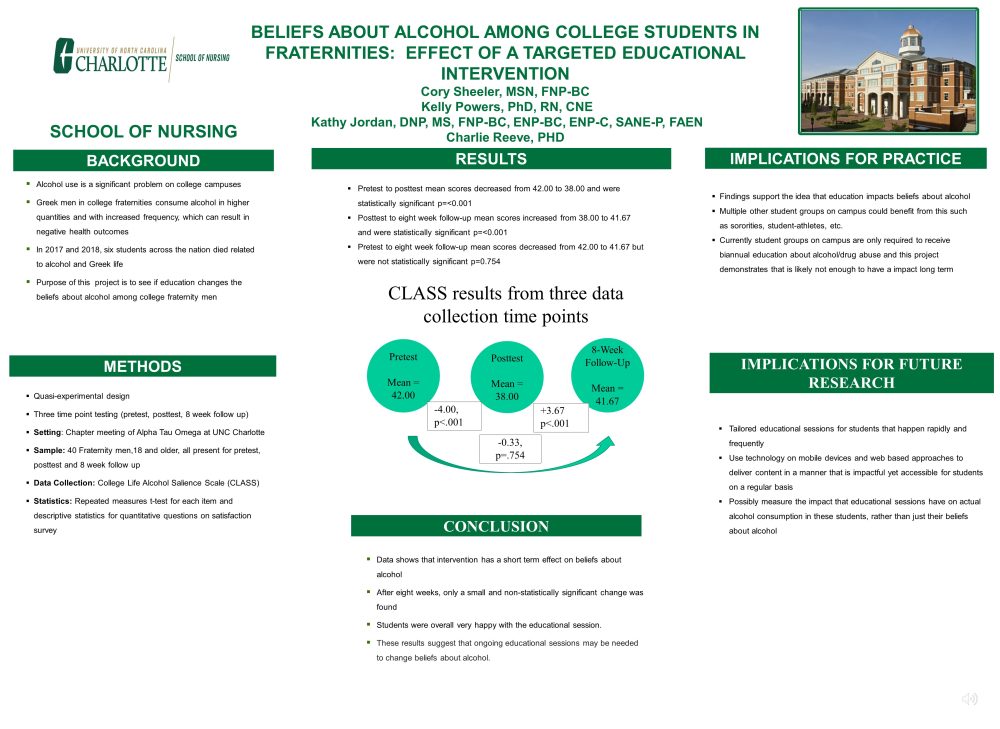BELIEFS ABOUT ALCOHOL AMONG COLLEGE STUDENTS IN FRATERNITIES: EFFECT OF A TARGETED EDUCATIONAL INTERVENTION by cory sheeler
Beliefs about Alcohol Among College Students in Fraternities: Effects of a Targeted Education Intervention
Dr. Cory Sheeler
Faculty
Abstract
Alcohol use is a significant problem on college campuses. Greek men in college fraternities consume alcohol in higher quantities and with increased frequency, which can result in negative health outcomes. The purpose of this project was to determine if a targeted educational intervention improved beliefs about alcohol among college fraternity men (N=40). Participants’ beliefs were measured using the College Life Alcohol Salience Scale (CLASS)
immediately before and after the intervention, and again eight weeks after to evaluate for sustained changes. Beliefs about alcohol’s place in college life significantly decreased immediately after the educational session (p<0.001) but returned to pre-test levels on the eight-week follow-up survey (p<0.001). A post-intervention satisfaction survey also revealed participants were highly satisfied with the education and receptive to receiving education on
alcohol. Project findings indicate that fraternity students would benefit from more frequent educational interventions to help promote sustained improvements in their beliefs about alcohol.
Presentation

Biography
Dr. Cory Sheeler is a clinical assistant professor at UNC Charlotte, where he has taught both clinically and didactically since 2010. Currently he teaches in both the undergraduate and graduate nursing programs, and also serves as chair and co-chair for DNP scholarly projects.
Collaborator(s)
N/A
Faculty Committee Advisor(s)
N/A